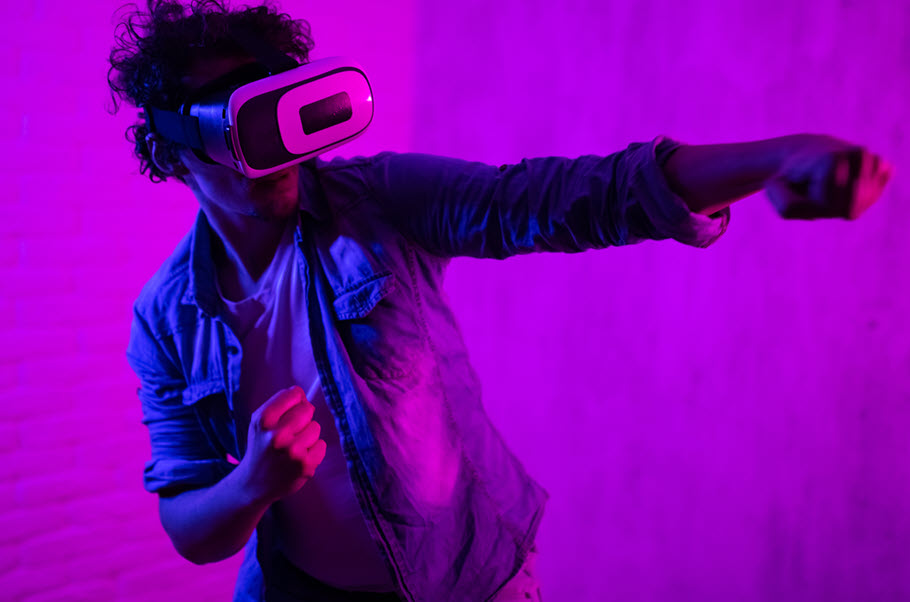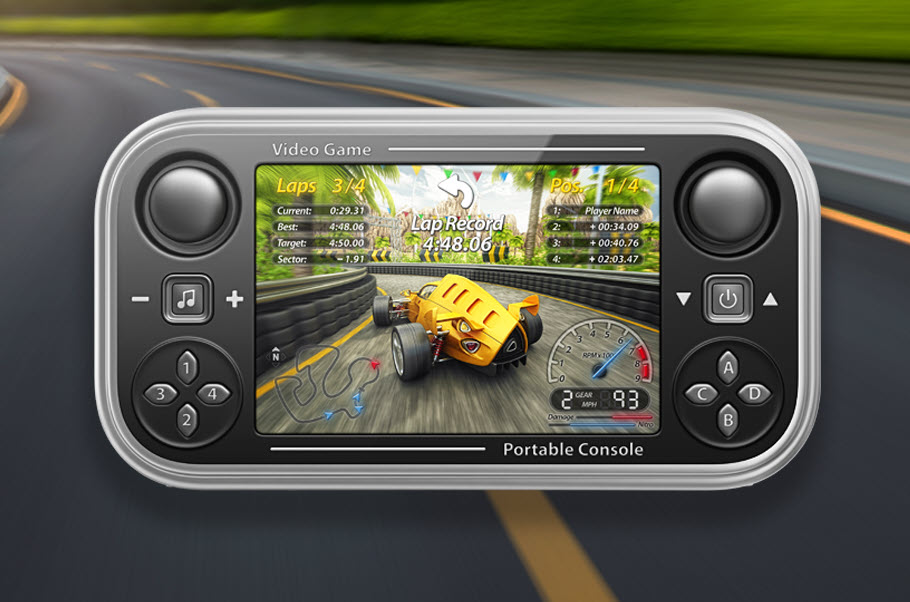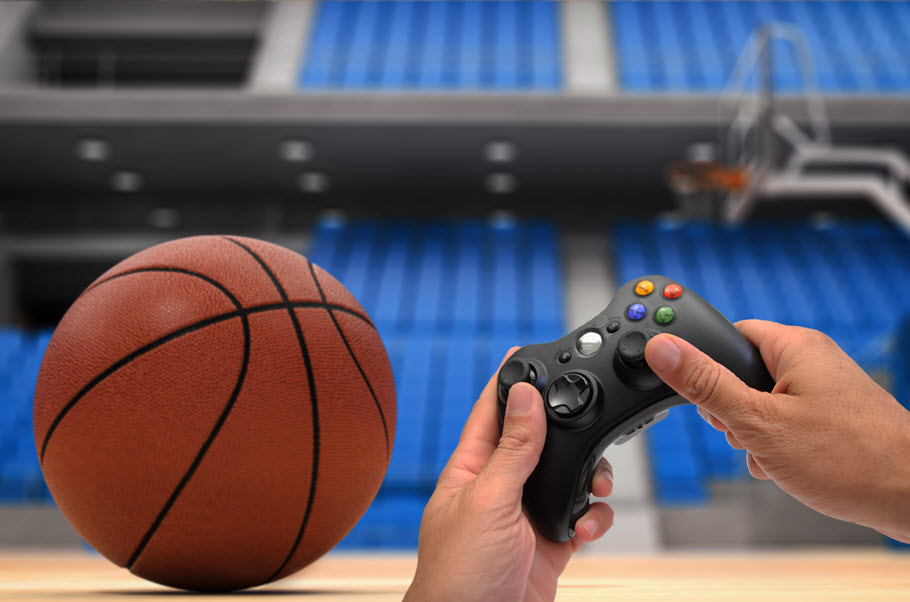Six Best Video Game Remakes
Bringing classic games to modern gamers.
In the Streaming Age, classic video game-inspired movies and TV shows are just a few clicks away. But classic games can be hard to find, and playing them may require investing in vintage hardware, which can sometimes be costly.
Remakes solve the problem by introducing (or reintroducing) modern gamers to prior-generation titles. Unlike a remaster, which may merely layer improved graphics and sound onto the original source code, a remake is a new game adapted from a classic, built to work on modern platforms and appeal to a modern audience while preserving the spirit of its namesake.
Here are six memorable and successful video game remakes.
1. Resident Evil (2002)
Released for Sony PlayStation® in 1996, Capcom’s original Resident Evil is a survival horror masterpiece. It pits humans against zombies in an abandoned Raccoon City mansion and helped set the standard for scary video games. Six years after Resident Evil’s release, the remake arrived, spurred by a partnership designed to bring the series to the then-new Nintendo GameCube®.
Resident Evil is frequently cited as an enduring example of a successful remake. With few exceptions, critics and players lauded the 2002 version as a fitting tribute to the original — still scary, still challenging, but with far superior graphics and gameplay, including a GameCube-specific control scheme.
The new game would eventually sell more than one million copies on multiple platforms, setting the stage for remakes of Resident Evil 2 (released in 2019), Resident Evil 3 (2020) and Resident Evil 4 (2023).
2. Pokémon HeartGold/SoulSilver (2009)
Game Freak’s Pokémon Gold and Silver are dual games developed for the Nintendo Game Boy Color®. Released in 1999, Gold and Silver together would become the handheld system’s all-time biggest seller and, a decade later, inspire Pokémon HeartGold and SoulSilver, remakes that were a hit for the next-generation Nintendo DS®.
The new games recreated the classics’ role-playing adventure, set in the Johto and Kanto regions, where players find, raise and do battle with Pokémon against other trainers. But they nearly doubled the number of available pocket monsters and added full-color, 3D graphics as well as new minigames.
Most notably, HeartGold and SoulSilver introduced the Pokéwalker, a handheld pedometer that allowed players to take their Pokémon outdoors and earn “watts” that could be exchanged for rewards, foreshadowing the Pokémon Go phenomenon of the mid-2010s.
3. Shadow of the Colossus (2018)
In the original Shadow of the Colossus, developed by Team Ico for the PlayStation 2®, a lone warrior seeks and does battle with a series of 16 colossi in a vast, rich, ancient landscape. It was a stunning, epic adventure. But it was released in 2005, and the graphics — though impressive for the time — didn’t do justice to the premise.
Thirteen years later, Bluepoint Games and Sony Interactive Entertainment released the remake for PlayStation 4® and PlayStation 4 Pro®. The 2018 version of Shadow of the Colossus is a near-exact duplicate of the original, but with all-new graphics displayed at far higher resolutions and frame rates (up to 1440p and 60 fps on the PS4 Pro).
The new Shadow of the Colossus was a runaway success, far outselling the game it was based on, earning universal praise from reviewers and setting a high bar as the trend toward remakes began to accelerate.
4. The Legend of Zelda: Link’s Awakening (2019)
Nintendo traveled back in time more than two decades to resurrect The Legend of Zelda: Link’s Awakening. The original was a 2D, two-color, open-world game released for the original Game Boy® in 1993. It was the first in the Zelda series to appear on a handheld system — an ambitious attempt to bring big adventure to the very small screen.
Link’s Awakening was remastered for the Game Boy Color in 1998, expanding the game’s palette and adding new elements. But it wasn’t until the 2019 release of the remake, developed by Grezzo and Nintendo for the hybrid tablet/console Switch™, that the game truly came into its own.
The remake of Link’s Awakening retains the original story, setting and characters, but with all-new graphics. Developers created a toylike character design that embraced the new platform’s 3D capabilities and represented a radical departure from the original. Critics and fans embraced the new look, cementing the 2019 game as a unique but generally well-received entry in a long series.
5. Black Mesa (Half-Life) (2020)
Scientist Gordon Freeman is thrust into heroism as he battles man and interdimensional beast in the original Half-Life, a first-person shooter first released for Windows PCs in 1998. Developers at Valve Software set out to create a cerebral alternative to other FPS’s of the day, setting the game in the Black Mesa Research Facility and testing players with challenging enemies, objectives and puzzles.
The title was a runaway commercial and critical success, winning Best PC Game and Best Action Game at the inaugural Game Critics Awards and spawning a series of sequels. It also found a second life (pardon the pun) as Half-Life: Source (2004), a mild improvement over the original thanks to Valve’s new Source 3D engine.
Then, presumably underwhelmed by Source, two teams initially unassociated with Valve or each other began working on a new game. After joining forces as the Crowbar Collective, they made Black Mesa, a true remake intended for free distribution. But fans, critics and Valve agreed that Black Mesa was a creative triumph with real commercial potential. The game was licensed by the studio and passed through various stages of further development before getting its official release in 2020.
6. Tony Hawk’s Pro Skater 1 + 2 (2020)
Marketed as a remaster but meeting all the qualifications of a remake, Tony Hawk’s Pro Skater 1 + 2 is based on Tony Hawk’s Pro Skater (1999) and Pro Skater 2 (2000). The first two games were developed by Neversoft with input and feedback from Hawk himself. They became instant classics for the original PlayStation, later to be ported to the Nintendo 64®, Game Boy Color, Game Boy Advance® and Sega Dreamcast®.
In the originals, players controlled one of 10 real professional skateboarders, racking up points by performing tricks and collecting objects. Released in 2020 for the PlayStation 4, Xbox One® and Windows, Pro Skater 1 + 2 upped the ante with drastically improved graphics and more of just about everything: more characters, more tricks, more modes, more songs and more fluid gameplay.
The remake reached the one-million-units-sold mark in its first two weeks on the market, faster than any other game in the series. 1 + 2 would go on to earn best sports game honors in multiple industry awards programs, get ported to numerous additional platforms and win the hearts of at least two generations of gamers.
Remake your gaming experience with a Yamaha AV receiver or sound bar.















